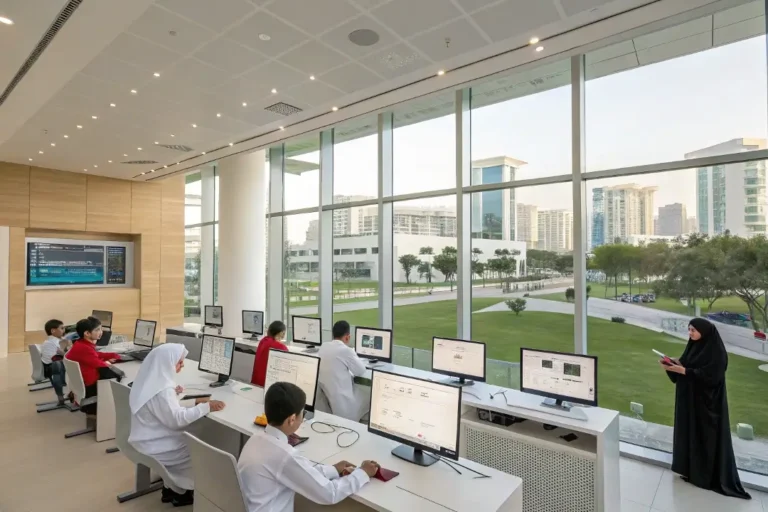
The UAE's Road to a Knowledge-Based Economy Through Education Reform
A Strategic Transition Beyond Oil
The United Arab Emirates (UAE) is making a strategic shift to decrease its reliance on oil and transform itself into a knowledge-based economy. This transition is a long-term vision that seeks to make innovation, technology, and human capital the pillars of national development. Instead of merely responding to the constraints of natural resources, the UAE has opted to lead by example, pursuing policies that prioritize education reform as the prime driver for sustainable development. Through holistic educational reforms and thoughtful investment in human development, the nation is creating the foundation for a knowledge-based future instead of one based on commodities.
Creating a Knowledge-Driven Education System
A knowledge-based economy is dependent on intellectual strengths rather than natural resources, and its pillars are innovation, research, and education. The UAE, traditionally oil-dependent, acknowledged the need to shift towards sectors like artificial intelligence, clean energy, and high-end manufacturing. To do so, the UAE has integrated education into national visions such as Vision 2021 and Centennial 2071, putting human development at the centre of long-term planning. The National Strategy for Higher Education 2030 specifically ties learning outcomes to labour market requirements and international competitiveness. Reforms at the school level are intended to eradicate rote learning and emphasize critical thinking, problem-solving skills, and digital competency. STEM education is highly emphasized to position the country in an innovation-driven economy. These reforms are underpinned by significant investments in teacher development so educators can adopt contemporary, student-centered methods.
Driving Higher Education and System Change
Higher education is a pivotal pillar in the UAE’s change. The nation has attracted world-renowned universities like NYU Abu Dhabi and Sorbonne University Abu Dhabi to open campuses in the country. These collaborations enhance academic quality, bring in research culture, and expose students to international best practices. At the same time, universities are being incentivized to adjust curricula to emphasize hands-on, employment-ready skills. The government of the UAE has also made its approval of academic programs faster by cutting them from months to even a week, enabling quicker adjustment to emerging markets. At the institutional level, the government promotes innovation ecosystems through special technology zones, startup financing, and research and development funding. Yet, the transition from conventional educational standards to critical thinking models is still a cultural issue that can take years to fully implement.
Addressing Challenges of Quality and Inclusion
Despite near-universal enrollment and literacy rates of over 95%, the UAE has gaps in educational achievement. UAE students tend to score below international averages on international tests such as PISA, indicating the need for more emphasis on quality. Moreover, although the UAE education system caters to a significant expatriate population, it has to make Emirati students competitive in the labour market. One of the strengths of the country is female enrollment in higher education—women make up the majority of university students. Yet, their entry into the workforce is still limited, and this is an untapped potential for increasing national productivity. Funding-wise, the UAE spends about 1.5% of its GDP on education, which is less than the world average of 4–5%, but this shortfall is made up to some extent by private financing and foreign partnerships. The expansion of reforms across private and public schooling might involve additional funding and improved accountability.
Lifelong Learning and the Way Forward
As the world keeps changing rapidly, the UAE appreciates that education should go beyond formal schooling. Lifelong learning programs have been brought into operation through such entities as the National Qualifications Authority and teacher and leadership standards frameworks. All these assist in ensuring that skills remain up to date during working lives, particularly with industries quickly evolving towards automation and AI. While the UAE has established a modern education infrastructure and drawn international academic talent, it remains behind knowledge-leading economies in terms of patent filings, research production, and innovation indicators. Establishing a knowledge-based economy is not a one-night achievement—it is about generational change and sustained investment. Nevertheless, the UAE’s direction is unambiguous. With its strong advocacy for education transformation, focus on innovation, and strategic alignment for emerging industries of the future, the country is on a sound trajectory toward sustained long-term economic viability and worldwide relevance.






